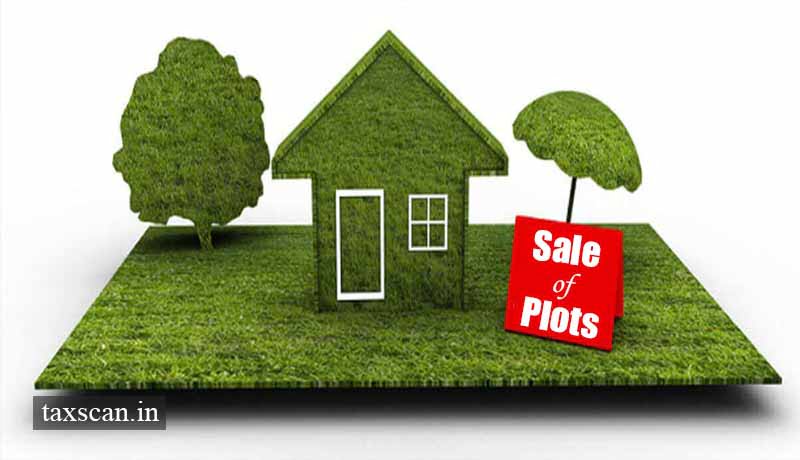GST on Sales of Residential Plots by Developers: Advance Rulings Issued but Disputes Looming Large

Nobody has any doubt as to whether selling land does attract any tax under the Goods and Services Tax Law. GST is not applicable to the sale of land because it is neither treated as supply of goods nor the supply of services as per Schedule III of the CGST Act, 2017. The land is identified as immovable property, and so, it does not attract GST, only stamp duty is payable on land purchases. Even sale of land along with constructions upon it, whether it is residential or commercial would not attract GST subject to the condition that it is sold as an immovable property which simply means sales after completion of the structure thereon, as per Entry No.5(b) of Schedule -ll to the Central Goods & Service Tax Act, 2017(CGST Act) [and as per the corresponding provisions under the State Goods & Service Tax Acts].
However, it is something different from the GST angle, where land plots are sold after development. The activity of land development includes leveling the land, construction of boundary wall, construction of roads, laying of underground cables and water pipelines, laying of underground sewerage lines with sewer treatments plant, development of landscaped gardens, drainage system, water harvesting system, demarcation of individual plots, construction of overhead tanks, other infrastructure works. Sale of such sites is done to end customers who may construct houses/villas in the plots.
Generally, two models are practiced in this particular area of transactions. In the first model, which is more common, the landowner(s) and developer(s) to come together and jointly develop a property. It helps the developers to ease out funding requirements towards land acquisition as also share economic risks and rewards of the project with the landowner. The Joint Development Agreements are structured in different manners to suit the requirements of both the parties and the most common being area share arrangement, revenue share arrangement, or combination of the two coupled with some upfront deposit.
In the second model which is more simple and less complex, a piece of own land is developed by the landowner himself and sells plots thereafter to prospective buyers. Then the question is what is the GST impact on these two models of land sales.
Recently these issues have been subjected to scrutiny by various advance ruling authorities, under section 98 of the CGST/SGST Acts. In both situations, GST is applicable, as per the advance rulings available for the time being.
ADVANCE RULINGS ON GST IN JOINT DEVELOPMENT VENTURES
Here, the common model of development, where landowner(s) and developer(s) to come together and jointly develop a property, is taken. The Authority for Advance Ruling in Karnataka in Advance Ruling No. 119 KAR ADRG 119 Dated: 30.09.2019 has ruled that in such circumstances the developer is liable to tax for the consideration received by him. The applicant, M/s. Marq Spaces Pvt. Ltd., Bengaluru is a Private Limited Company, registered under the Goods and Services Act, 2017, engaged in the business of property development. They have entered into a Joint Development Agreement [JDA] on 08/11/2017 with landowners for the development of land into residential layout along with specifications and amenities. The consideration was agreed on a revenue-sharing basis in the ratio of 75% for Landowner / Agreement Holder and 25% for Applicant. The cost of the development shall be borne by the Applicant developer. Pursuant to JDA, they had entered into an agreement with customers for sale of developed plots for consideration. In view of the above, the applicant developer sought the advance ruling in respect of the following questions:
- Whether the activity of development and sale of land attract tax under GST?
- If the answer to the question No.1 is yes, for the purpose of taxable value, whether the provision of rule 31 can be made applicable in ascertaining the value of land and supply of service?
The Authority for Advance Ruling ruled with regard to Question No.1 that, the activities as envisaged in the agreement between the applicant and the landowner’s amount to supply of service and is liable to be taxed under GST. As far as the 2nd question is concerned, Rule 31 applies in the instant case and the value of the supply is equal to the total amount received by the applicant, which is equal to 25% of the market value of each plot.
In this case, the core contention of the applicant is that they are engaged in the sale of land. The sine qua non for any sale of land is the ownership of the land sold. The seller can claim that he is engaged in the supply of land by way of sale only if he himself enjoys the title of the land. Anyone who does not possess any title of the land cannot be considered as the seller. Such a person may have a role in the activity of sale but he cannot claim himself to be the seller. It is argued that, in the instant case the applicant has a right to 25 % of the total number of plots developed and the sale of these plots, as well as those of the landowner’s share, is covered under serial number 5 of Schedule III. However, the AAR does not agree with this interpretation of the agreement by the applicant. Thus, the authority has overruled all the contentions raised by the applicant in this respect in the light of the terms and conditions agreed between the applicant developer and the landowner.
In a similar case, the AAR of Madhya Pradesh has also issued the same rulings as per Order No. 02/2020 dated: 06-01-2020.
RULING BY AAR, GUJARAT – APPLICANT ENGAGED IN PURCHASE OF LAND AND SELLING THE SAID LAND BY CONVERTING into INTEGRATED RESIDENTIAL SUB PLOTS.
Here, the applicant is M/s. Satyajit Infratech who is engaged in the purchase of land and selling the said land by converting into integrated residential subplots of varying sizes under name of “Bliss Homes” with following basic facilities: (i) compound wall (ii) Main entry gate (iii) Internal plot separation walls (iv) Internal roads of RCC and Paver Block (v) Plantation surrounding plots (vi) Common plot developments (vii) Rainwater harvesting system for rainwater discharge (viii) Common bore well with extra emergency submersible pump (ix) Drainage system (x) Children play area (xi) Construct Clubhouse with various amenities (xii) Underground water supply and electricity connection to each plot (xiii) Swimming pool (xiv) Botanical Garden and (xv) Tennis Court. Thus, they are providing basic necessary facilities for members so the buyers will not face hurdles whenever they built their homes on their plots. Out of the above-mentioned facilities some facilities like a plantation, drainage system, internal road and bore well facilities are must for plot selling for residential purposes as per common GDCR [ Gujarat Comprehensive Development Control Regulations – 2017] of Government of Gujarat. Under the circumstances, the applicant has requested for advance ruling as to;
- Whether the activity of purchase of land and selling the said land by converting into integrated residential subplots of varying sizes under name of “Bliss Homes” with basic facilities prescribed is liable to GST or not?
- If the same is liable for GST then under which category of supply it will fall and what will be the rate of GST on it?
3. The Applicant has further submitted that; According to the applicant actually they are selling developed land as plots and as such their activity is a sale of land only and the same is not the supply of goods/services as stated in Schedule-III para 5. Hence, the sale of land is not taxable under GST law.
On consideration of the facts and relevant provisions of law, the AAR found that in Schedule -ll, at serial No. 5, the following details are mentioned:
“5. Sale of land and, subject to clause (b) of paragraph 5 of Schedule II, sale of building”
Clause (b) of paragraph 5 of Schedule II says as follows
(b) Construction of a complex, building, civil structure or a part thereof, including a complex or building intended for sale to a buyer, wholly or partly, except where the entire consideration has been received after issuance of the completion certificate, where required, by the competent authority or after its first occupation, whichever is earlier.
Explanation. —for the purposes of this clause—
(1) the expression “competent authority” means the Government or any authority authorized to issue completion certificate under any law for the time being in force and in case of non-requirement of such certificate from such authority, from any of the following, namely: —
(i) an architect registered with the Council of Architecture constituted under the Architects Act, 1972; or
(ii) a chartered engineer registered with the Institution of Engineers (India); or
(iii) a licensed surveyor of the respective local body of the city or town or village or development or planning authority;
(2) the expression “construction” includes additions, alterations, replacements or remodeling of any existing civil structure; ……
Relying on the above statutory provisions but without having any detailed discussion on the matter the AAR has ruled as per Order No. GUJ/GAAR/R/2019/21/dated: 20-09-2019 that;
- The activity of purchase of land and selling the said land by converting into integrated residential subplots of varying sizes under the name of “Bliss Homes” with the basic facility is liable to GST.
- The activities of the applicant will fall under clause (b) of paragraph 5 of Schedule –II of Gujarat Goods and Services Tax Act and Central Goods and Services Tax Act. Hence the activities of the applicant attract 9% CGST and 9% SGST as per serial no 3 of Notification No. 11/2017 Central Tax (Rate) dated 2806-2017.
In short, the aforementioned advance rulings are issued holding that sale of house plots after undertaking development thereon is taxable under GST. In case of joint development of plots, the developer alone will be liable for his revenue share, and in a case where development is done by the landlord himself, he is liable. However, the author is not of the considered view that the matter reached at a finality as still there remains certain missing points and needs further clarity as to;
It is not clear whether Clause (b) of paragraph 5 of Schedule II [saying that no GST is applicable where the entire consideration has been received after issuance of the completion certificate, where required, by the competent authority or after its first occupation whichever is earlier] is applicable, in any way in these cases.
Where development of land is naturally bundled with the sale of land and sale is the principal supply in the bundled transaction, can the transaction be construed as composite supply not liable to GST?
As far as the ruling issued by the Gujarat AAR is concerned, it seems that the applicant is liable to tax on the entire value of the plot sold, including the value of the land. Whether this valuation is correct?
Conclusion
Thus, the lack of clarity prevails underlines the existence of grey areas and anomalies in this matter. It seems, the issue is heading towards a further large number of disputes and litigation. Having said that, it is worthy to note that, in joint development ventures the terms and conditions included in the agreements assume more significance for levy of GST. In the joint development of plots, it is more logical to determine the value of infrastructure works based on chartered engineer’s certificate for levy of GST.
 Aji V Dev is an Advocate practicing in the High Court of Kerala.
Aji V Dev is an Advocate practicing in the High Court of Kerala. 

